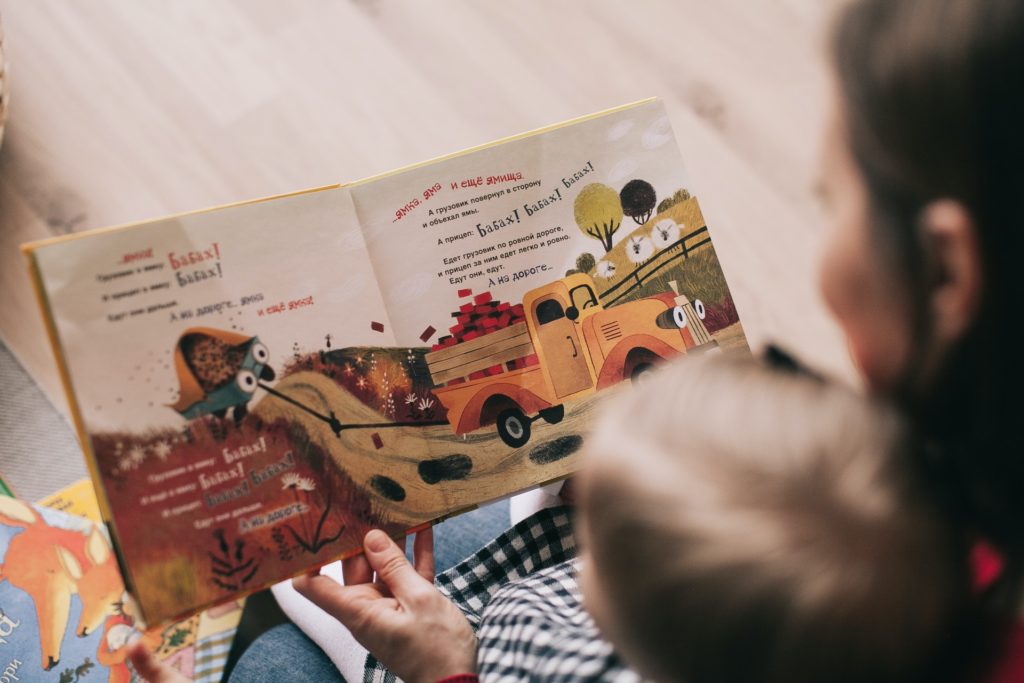We have heard some famous hiphop stars say their money grow on trees., but we have seen many of them go brankrupt after amassing so much wealth. Money doesn’t grow on trees. And the time for your kids — who may have watched or heard these famous artistes flaunt their wealth as if it never ends, and have caused some envy in the kids — to be financial literates. We’ll find out in this article, ways to teach young kids about money so it sticks with them.
Here are things you’d be glad you knew before becoming a Dad.
A study in the U.S revealed that one out of every four adults with kids below 18 confessed that their parents gave them no lessons about money as a child. But when it comes to money, ignorance is not bliss. And being ignorant can actually hurt you badly. So, how should parents educate their children about financial wisdom in a practical way that will stay glued to them all their lives?

These 91 Conversation topic will help you dig into the minds of your children.
However, here is a list I have put together from the advice of experts who are also mature and experienced parents in ways to teach young kids about money so it sticks with them.

1. Always Explain Where The Money Comes From
Personal finance expert and the co-author of ‘Smart Money Smart Kids: Raising the Next Generation to Win with Money’, Rachel Cruze says, “When you’re teaching your kids about money, it’s important to teach them where it comes from. Money does not just come from mom and dad’s wallet,”

Always ensure to continually repeat and demonstrate and demystify the connection between money and work. Let them know when you work, you get money. And when you don’t work, you don’t get money.
2. Teach Them The Principles Of Giving, Savings And Spending

“Once you’ve established that money comes from work, I recommend teaching your kids three basic principles when it comes to money — giving, saving and spending,” says Cruze.
She also added that giving is one of the most important of the three principles. And this is because you’re teaching them to know the importance of helping others at a very tender age, which is invaluable.
Cruze continues. “As for saving and spending, encourage your child to set aside some of their money to savings and some to spending each time they get paid. Remind them that once their money is gone, it’s gone. And yes, your kids will make mistakes, but it’s better that they make those mistakes under the safety of your roof.”
On the three principle, you should consider organizing money with three piggy banks. Young children often need tangible ways to comprehend abstract concepts, hence, it is vital not to just explain these principles verbally, but help them understand by giving them tools to practice with.
CPA and Founder of the personal finance site Money Done Right says Logan Allec, “Instead of just having one piggy bank for your child, get three, and label one ‘spend,’ one ‘save,’ and one ‘give’.”
She added, “Any time your child gets money — allowance, payment for completing a task, birthday money, etc., — encourage them to split the money up between all three banks. The key to this being educational, is to allow your child to choose how they split the money, as well as what they do with it.”
This exercise is not only going to be of great help to make your children become confident in money matters, it will also create a good atmosphere for meaningful conversations between parents and their children on the management of money.
“Talk with them about both what they will do with their money as well as how they could have split their money up differently if an appropriate situation arises,” says Allec.”Ultimately, though, the decision should be up to your child.”
The idea is to demystify and continually demonstrate the relationship between money and work.
Here is what CEO of WealthBar, Tea Nicola says about the technique:
“My daughter who is eight understands that there are three buckets of money that she has to keep track of: saving, spending and giving,” Nicola says. “For her, saving is usually for big ticket items like going to a special summer camp or other experiences she wants to have. Spending money is what she can use on a daily basis, such as buying a candy bar or something like that. We’re also teaching her the importance of giving. This could be giving to charity … or it could be giving to others, like buying a present for her friend’s birthday.”
Check out our article on how to raise Generous Kids.
3. Involve The Kids On Family Budget Talks
Founder of FiveYearFIREescape, Leif Kristjansen, who regularly writes about his early retirement experiences on his blog revealed that he found out that the best way to teach children about money is to involve them in on family budget discussions.
Leif says, “They will see how you responsibly handle all of life’s pile of bills and issues. Kids naturally want to emulate their parents so they will start to think about spending and how to minimize it.”
Leif also added that he gives room for talks before dinner, especially since everyone stays in same room, but then, discussions are also permitted whenever they arise. “Our talks would involve reminders between [my wife and I] to check or pay the bills or to move money into investment accounts.” says Leif.
The idea is really to get everyone comfortable with money talks without showing stress or stigma. So, if you have very young children that you think cannot participate, it’s fine.
4. Practice Gratitude
Leif advices bringing on your toddler to lighten the heightened mood accompanied by budgeting and sorting bills. He says:
“I let my daughter [who is not yet school-aged] sit on my lap while I pay the bills or check on my investments to see how it works. I don’t let her hit many buttons in case she does something bad, but she still likes it. Everything is digital now so it’s less tangible for kids, but they know I hit some buttons on the computer to pay the bills and are happy to be a part of it.”

You should consider giving out cash for birthdays and holidays where sharing of gifts is a trend. Apart from the relief from shopping stress you get, it also empowers your kids to involved in money mathematics and be shrewd with decisions.
A parent, Thomas says, “We stopped buying gifts and started giving them money so that they can make budget-based decisions. In the past, when they made birthday and Christmas lists, they put so much on the list — we thought they should start understanding how much things cost.”
Check out the Mistakes Parents make with their Teens and Tweens.
5. It’s Fine To Give Allowances, But Make Them Count
Just as every human, your children will need money at some point in their lives. It could be for a field trip, gifts, hanging out session, or for sports activities. Giving them money for their personal interests is really good, but ensure that they earn it. This will also give them good idea about how income works.
An example is a parent, Nicola who rewards her eight-year-old daughter for engaging in chores that are not exactly part of her regular daily tasks. She doesn’t get paid for cleaning her own room, or cleaning the dishes. These are non-negotiable.
Nicola says, “You don’t want [your child] to associate chores exclusively with earning money. Because if she ever gets a job, she’s [then] going to stop doing chores in the house. And that’s a problem, she has to contribute to the household like everybody else.”
Co-owner of Secure Retirement Solutions, Kevin Klug, also suggests considering allowance for your child after he/her completes a set of weekly chores. In essence, “they now owe you [money] for every chore not completed.” He added.
You may also like: Great ways to help your teenagers make and keep great friends.
6. Allowances Should Not Just Be Given For Fun
Ensure as a parent that the allowances you give to your child should be given with the full understanding that even though some of the cash can go into fun stuff, it should more importantly be spent on needs. The lessons around this should intensify as your children grow older.

A Mom and the Director of education for Consolidated Credit, April Lewis-Parks says:
“When deciding how much allowance to give, you’ll want to be sure that everyone understands what the allowance must cover. Is it school lunches? Snacks? Computer games? Extracurricular activities? For older children, you may want to add clothing or other bigger ticket items to the list,”
It is always important to write it down clearly initially, so there are no misunderstandings around it.
7. While Scrolling Through The Cable Channels, Talk About Your Cable Bill To Your Kids
You should take note that money lessons do not always have to come in hard and painful.

CFP, and head of financial planning at John Hancock, Misty Lynch talked about finding a golden moment when watching TV with her young children. Lynch says, “They will look for movies on TV and can understand what the word ‘free’ means versus something you have to pay for. They love when things are free and so do I, considering that we already pay for cable.”
8. Release A Bit More Cash Next Week If Your Child Is Meeting Their Saving Goals
Imagine your kids expending all the cash you gave them on toys. And again, you are at the toy store, but your kids have no money. What exactly will you do?
Kristjansen says on kids saving, “We incentivize not spending their allowance by giving them extra money if last week’s money is still around. It’s an odd version of compounding but we are trying to drive home the value of saving.”
Teach your children that when money runs out, that’s it, until money is earned again. It will be hard initially but you’d have taught them the benefit of living below their means. That is really the best way to win when it comes to money.
9. Work On Your Own Attitude To Money

Your kids are constantly watching you if you really do what you tell them to do. In fact, they learn faster and easily when you demonstrate what you teach. Don’t go teaching your kids prudence while you keep spending above your means. Your children will pick whatever you project to them about money. They will watch you teach and handle things and then, mirror it.
Cruze says, “So if you are always stressed or have a scarcity mentality when it comes to money, they will likely grow up to be that way, too. If they see you spending above your means, they’ll think that’s normal for everyone. You have the opportunity as their parent to lead by example and set them up to win with their money.”
10. Teach Them The Danger Of Credit Cards
Once, your child turns 18 – especially when they enter college – they are likely to get exposed to lot of credit card offers. If you are yet to teach them why they shouldn’t tamper with debts, they will become prone to becoming another victim of credit card. It is however up to you to determine the best time to acquaint them with these principles.


